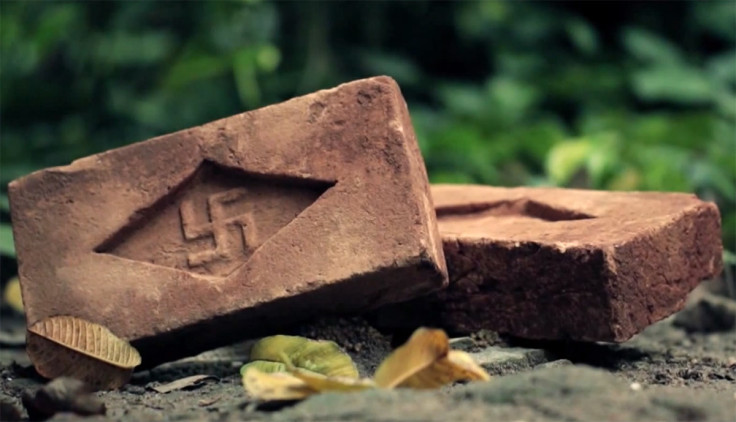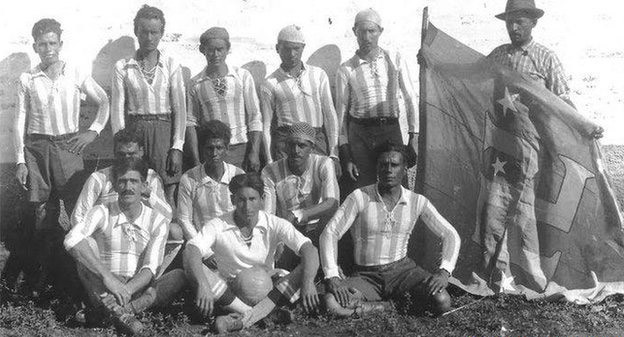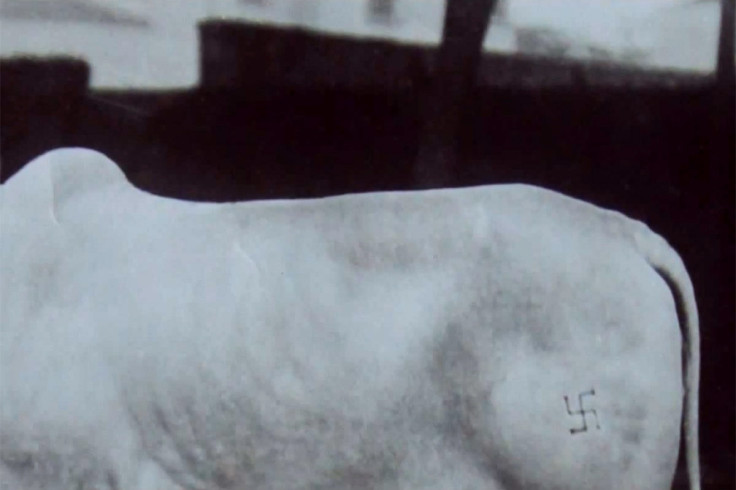Brazilian Nazis Kept Slaves on Remote Farm, Report Finds

A BBC report has uncovered a remote farm in Brazil which was actually the home of members of the Acao Integralista Brasileira, an extreme right-wing organisation that was sympathetic to the Nazis.
Jose Ricardo Rosa Maciel, a former farmer at the ranch, told the BBC of his discovery of a brick which contained the symbol of a swastika.
He said: "One day the pigs broke a wall and escaped into the field. I noticed the bricks that had fallen. I thought I was hallucinating."
The Cruzeiro do Sul farm is situated in the state of Sao Paulo, near Campina do Monte Alegre.
Prior to the Second World War, Brazil had over 40,000 Nazis, the largest base of fascist supporters anywhere outside Europe, and the country had strong links with Nazi Germany.
Campina do Monte Alegre, in particular, was an area with a profusion of fundamentalist movement supporters during the 1930s and 1940s.
Sidney Aguilar Filho, a history professor and author of a study on authoritarianism and exploitative labour in Brazil during the 1930s, first unearthed the story behind the ranch.

Filho found out the farm had previously been owned by the Rocha Miranda family by "coincidence" when working on his thesis. When probing deeper into the mystery of a group of boys who disappeared from an orphanage in the capital and reappeared at the remote farm, he discovered it housed members of the Acao Integralista Brasileira.
The Rocha Miranda family were affluent industrialists who supported the AIB: Renato, and his two sons, Otavio and Osvaldo.
It transpired that the farm served as a work-camp for abandoned, non-white children, who were subjected to a regime of hard labour. Rallies were also held there, bringing thousands of the fundamental organisation's members together.
According to Filho, Osvaldo Rocha Miranda applied to be a guardian of the orphans and a legal decree was given. Filho encountered three survivors in his research who all give similar testimonies.

However, the great-nephew of Otavio and Osvaldo, Maurice Rocha Miranda, denies the children were kept as "slaves". The surviving Rocha Miranda family say their ancestors gave up their right-wing political views before the second world war.
Argemiro dos Santos, now aged 89, came from an orphanage before Rocha Miranda took him to the Cruzeiro do Sul farm.
He told the BBC: "They didn't like black people at all.
"There was punishment, from not giving us food to the palmatoria. It hurt a lot. Two hits sometimes. The most would be five because a person couldn't stand it.
"There were photographs of Hitler and you were compelled to salute. I didn't understand any of it."
© Copyright IBTimes 2025. All rights reserved.






















